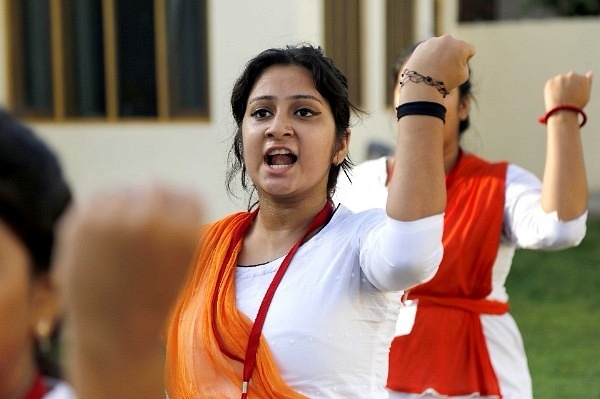
Bengaluru’s “Raksha Band” Proposal Is A Bad Idea
The concept of a ‘raksha band’ recently announced by the BBMP is superfluous at the least, and has unintended safety and security risks.
The Bruhath Bengaluru Mahanagara Palike (BBMP) recently announced a new ‘novel’ way to bring down crimes against women by announcing a wearable wrist band called the ‘Raksha Band’. The band would send an alert when the wearer moved her arm in a certain direction. The alert would be sent to five contacts chosen by the wearer and a police control room. Media reports also highlight that audio and video recordings would be transmitted.
While all of this might sound good, in reality, it is a bad idea. Why is it a bad idea? Let us take a look:
Technology and the Sarkar
Indian government bodies aren’t great with technology. Most services are outsourced to private agencies simply because government employees don’t know how to use them, and even if they do know how to use it, there are many problems. If people are either uncomfortable with technology or unable to use it, there is a heavy chance of the system breaking down or being misused. Further, wearable technology is rather expensive, especially those with gesture-based controls.
Accidental inputs
The device in question is supposed to send a notice to the server when the wearer moves her arm in a particular direction. However, given the cost of the device – BBMP’s chairman says it will cost Rs 300 – it might not very well record gestures correctly. This gives rise to cases where the band might pick up any gesture and present it as an emergency situation. Knowing law enforcement in India, a single instance might result in them labelling it as a case of crying wolf and thus when it is actually used in a real emergency situation, the call for help may be dismissed.
Moral Policing, Voyeurism and Stalking
The biggest threat the band holds is with moral policing and stalking. While it might get activated at the user’s end only due to certain gestures, by virtue of being a digital device, it can be tracked. What stops someone who has gained access to the system from using it to monitor someone or track someone? The police might use it to harass women who have late working hours or go out with male associates. Further, given the recent instances of data leaks from government databases, this could very well turn into a liability.
Passing the buck
The whole idea of the band seems to be an attempt to place the onus of safety on the women who wear it. In the event of a crime, the police may very well blame her for not making use of the band.
The problem with crime in India, especially against women is the lack of enforcement of the law. If any government is serious about tackling the crime rate, it should focus on better policing and evidence collection. At the same time, the judiciary too needs to progress faster during trials. The onus of proving a crime should not be on the victim but on the law enforcement agency.
Getting the police to act is one part of solving the problem. The other issue is making the city safer. Public spaces need to be well lit and issues with streetlights must be tended to as soon as possible. Other measures such as allowing establishments to remain open at night should be considered. When establishments remain open at night, crowds tend to stay and this, in turn, will help in making cities safer.
The concept of a wrist band is superfluous at the least, and has unintended safety and security risks. Making our cities safer is not a single-step process but requires a multi-step approach that also focusses on averting perpetrators.